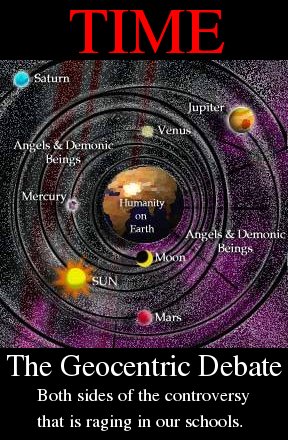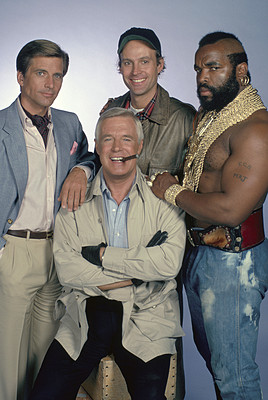Wavepacket Blog only displaying 'books' posts |
> |
| 2012 | |
| August | |
| Fri Aug 3 12:06:39 2012 John Keegan |
|
| 2010 | |
| August | |
| Tue Aug 24 21:06:42 2010 Time Magazine |
|
| 2009 | |
| May | |
| Mon May 25 23:33:34 2009 TV Shows are Dead |
|
| >> Older entries >> | |
| >> links >> | |
| Fri Aug 3 12:06:39 2012 John Keegan One of my favorite authors. |
|
| John Keegan died yesterday (2 August). He was one of my favorite authors, and probably
my favorite author of military history.
I first read John Keegan's classic The Face of Battle, which many consider his best work. Later, I read A History of Warfare, which is as far as I know the only modern-day response to Clauswitz's classic On War. Clauswitz wrote his book after the Napoleanic wars, and it wasn't until Keegan that the famous dictum "War is the extension of diplomacy by other means" was challenged. Keegan's perspective was that war and warfare is more cultural than political. I won't try to explain it here (read Keegan!) but I found his overall take very persuasive. I've read several other Keegan books, such as The Second World War and The Mask of Command. Personally, my favorite of his books was The First World War, which I've heard described as the best single-volume on The First World War there is. Certainly it is the top selling Keegan book on Amazon.com. One of my prize possessions is a signed hardcover version. I'm sorry to hear that Keegan has passed away, but I think that he has already influenced multiple generations of historians and soldiers, and will influence generations more. Comments |
Related: > books < geopolitics Unrelated: economics energy environment lists mathematics predictions science |
| Tue Aug 24 21:06:42 2010 Time Magazine Now for adults! |
|
| It's no secret that I'm not a big fan of
Time Magazine. In 2006 I wrote a
blog entry criticizing Time. And in 2002 I was sufficiently upset to write a letter to the editor, which
you can
see here.
But after a while I stopped caring, since after all, they have magazines to sell, and I have better things to do (and read). So I stopped subscribing years ago. However, today The Onion published a hilarious video about Time: Advanced, which pretty much captures my feelings. It is sometimes brutal, but maybe Time has backslid even more since I last read it. To be fair, the editors are just trying to play to the lowest common denominator, so they can keep as wide a subscription base as possible. When you do that, you'll end up with something like Time. But The Onion video is awesome. Comments |
Related: > books < Unrelated: economics energy environment geopolitics lists mathematics predictions science |
| Mon May 25 23:33:34 2009 TV Shows are Dead Say goodbye to the TV series... |
|
I'm not the best person to make predictions about TV shows, since I don't
actually watch any. But even someone who only watches other people watch TV
shows can see a few trends:
This is an interesting paper, covering how TV has evolved over the past 30 years. Some of the stats:
Then, this paper, which as far as I can tell covers leisure time in the Netherlands, notes that TV viewing per week grew a lot from 1980 - 1990, but was mostly flat after 1990 (although still growing!). According to that, people spend from 11.5 - 17 hours per week watching TV. Wow. However, time spent on the PC or Internet grew from basically zero in 1980 to over two hours now. Also, it grew the most among the 35-54 year olds, so the people watching the least TV (11.5 hours per week) were also the demographic spending the most time online (2.1 hours per week). And finally, this presentation (why is it North European countries measure their leisure time so well?) has some great data. Namely, their "Time spent on media, population 12+" graph, which shows:
So the summary: people are spending more and more time online, and less with other media--except maybe books. And it's a double-whammy for TV networks, since there are more of them competing for less of peoples' time. What does this mean for TV shows? At the moment, TV shows are hitting some rough times. All that sells on the networks is reality TV such as American Idol or Survivor. Other good shows such as Firefly get shut down due to poor ratings (I'm not a Firefly fan but I know many people who were disappointed when the series was cancelled--and I think it was better programming than most shows out there! But I didn't help Joss Whedon any, since as I said, I'm not really a TV watcher). The TV execs are wondering what sort of programming will save them. Probably nothing will save them! TV series will go away, and in 5-10 years we won't watch them. Why? Everything will be online. There is absolutely no reason to watch anything on TV except for live telecasts such as sports. Watching online gives you as good or better resolution. Most importantly, you can pick when you want to watch the show, and you can pause and play whenever you want. Your viewing schedule isn't tied to the network's broadcast schedule. I don't think syndicated shows (that is, shows consisting of multiple episodes) will go away. But the medium will change, and TV will be left behind. Here are my predictions:
I have no idea what the new revenue model will be. Everything driven by product placement? Companies will fund high-quality shows in exchange for regular advertising? Most likely, the revenue model will consist of websites that pull content from the producers of the shows, and add targeted advertisements to viewers that want to download. So TV shows will start to fade into history. People will soon talk about the hot new Internet show they're watching instead. You heard it here first! (Especially if you're from Denmark, since I know you read a lot of blogs in your leisure time). Comments |
Related: economics > books < predictions Unrelated: energy environment geopolitics lists mathematics science |
| Links: |  |
Blog Directory | Blog Blog | Technorati Profile | Strange Attractor |



